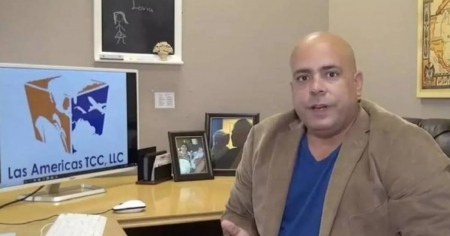Former Democratic Congressman Joe García asserts that a friend of his, a member of the United States Congress, is "considering" a bill "to lift the embargo" on all Cuban Mipymes. In an interview with CiberCuba, the lawyer also explained that this involves removing all the limitations that negatively impact Cuban entrepreneurs, such as monetary and financial restrictions. The measure, he added, would provide greater security to the 12,000 small businesses registered in the Island since 2021.
García acknowledges the difficulty of implementing a measure like this. "It's easier said than done," he added at the end of a conversation in which he expressed his satisfaction with the new measures that the Treasury Department approved this week, benefiting small and medium-sized enterprises (Mipymes). Among these are the lifting of the ban on opening bank accounts in the United States, the authorization of transactions in U (through third countries), the expansion of access to Internet and software services, and the creation of the category of independent entrepreneur within the private sector, which includes small and medium-sized enterprises and not just self-employed individuals.
These measures come days after the Biden Administration took the first step to remove Cuba from the list of state sponsors of terrorism, by withdrawing the Díaz-Canel regime from the ranking of countries that do not cooperate with the United States in the fight against terrorism. They also arrive a month after the migration talks held between the two countries last April, during which the Cuban government complained about the embargo.
In response to the question of whether the decision by the Department of the Treasury to ease restrictions affecting Mipymes is an attempt by President Biden to curb the wave of migration from the Island, Joe García dismissed the notion, although he admits that "it's a good argument." "If this is happening, I am not a part of it. I don't think that's the case. These are measures that had been discussed and implemented," he noted, before clarifying that they were not adopted earlier due to votes related to the war in Ukraine and other matters with "very tight" decisions in Congress.
García does not hide his satisfaction with the new measures approved by the Treasury Department. "I think it's a good thing and it will have an impact on Cuba and Spain because it's the financial center for many small and medium-sized enterprises, and one can already find banks financing some of the purchases made by these companies." He also added that these measures will lower the cost of many transactions and praised that Cuban entrepreneurs can legally open bank accounts in the United States, which is something that has been done outside the law and will now be regulated.
Despite acknowledging that it is not the embargo but the Cuban regime itself that limits the creation of Mipymes by not opening the door to productive forces, Joe García understands that measures like those adopted by the Treasury Department confirm that the United States is willing to help. "What cannot be left on our part," he pointed out.
He also acknowledged that the Cuban government squandered the opportunity provided by Obama during the thaw years, but he argued that lifting restrictions on Mipymes fosters civil society. "Unfortunately, Cuba has not made the necessary opening and claims that we now have enough of this. I don't know what there is enough of in Cuba that the government feels the need to regulate, but well, let's give the bureaucrats something to do."
Despite being very few small and medium-sized enterprises (12,000), they represent almost 20% of Cuba's GDP, including self-employed workers, cooperatives, and small businesses, and they provide jobs for over a million people. "They should be opening 700 (small businesses) a day because in Cuba everything is yet to be done and everything is at a standstill."
Joe García denies that with these measures the United States government is providing support to the Cuban regime. "When you give food to someone, you are not giving oxygen to the government," he insisted.
In response to CiberCuba's question about whether he understands the anger of Cuban activists regarding the U.S. measure, Joe García said yes, and he recalled that he was the executive director of the Cuban American Foundation. "I am the architect behind this. I've heard many people talk about it, and when you hear them, you think: 'This guy was quite the hotshot in Havana,' and they didn't do anything there," he joked.
"These phony heroes who claim my father has to starve in Cuba to free Cuba are worse than the people they pursue."
Filed under:
